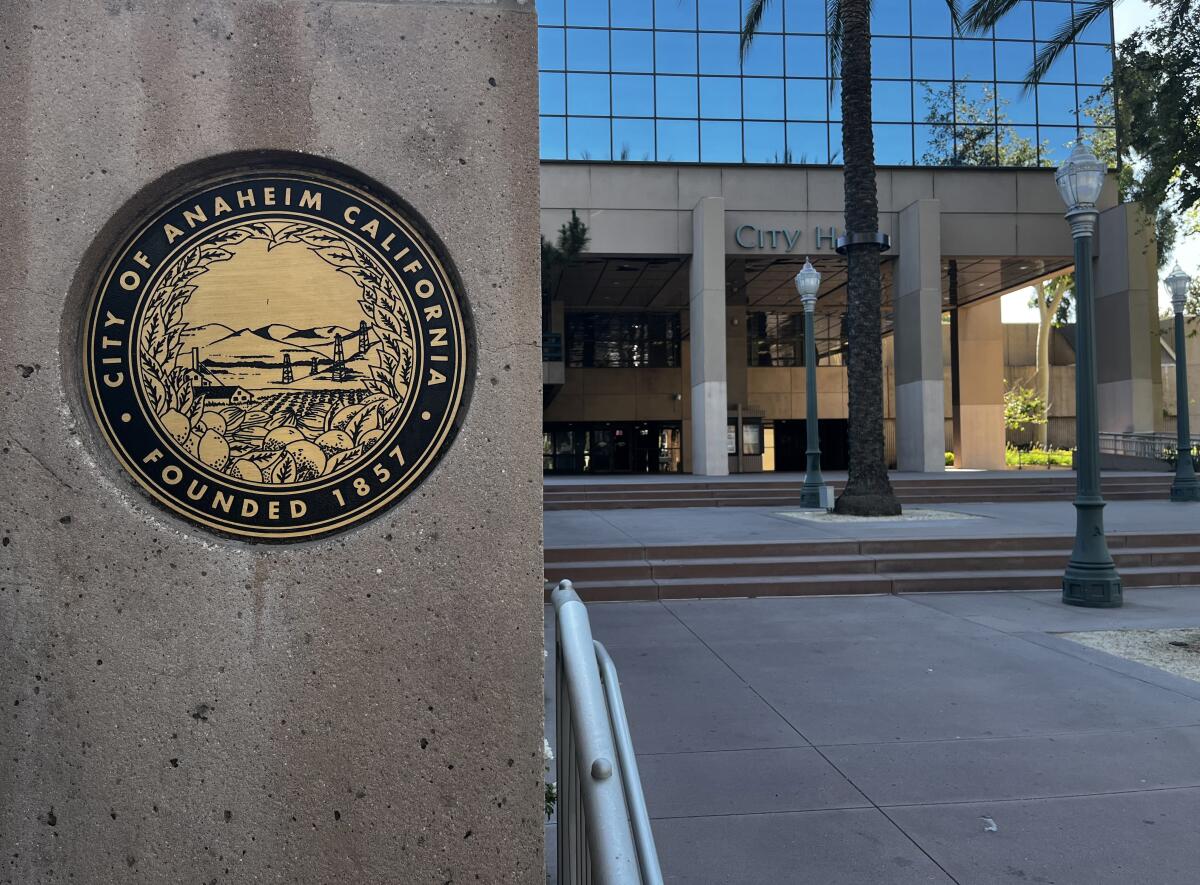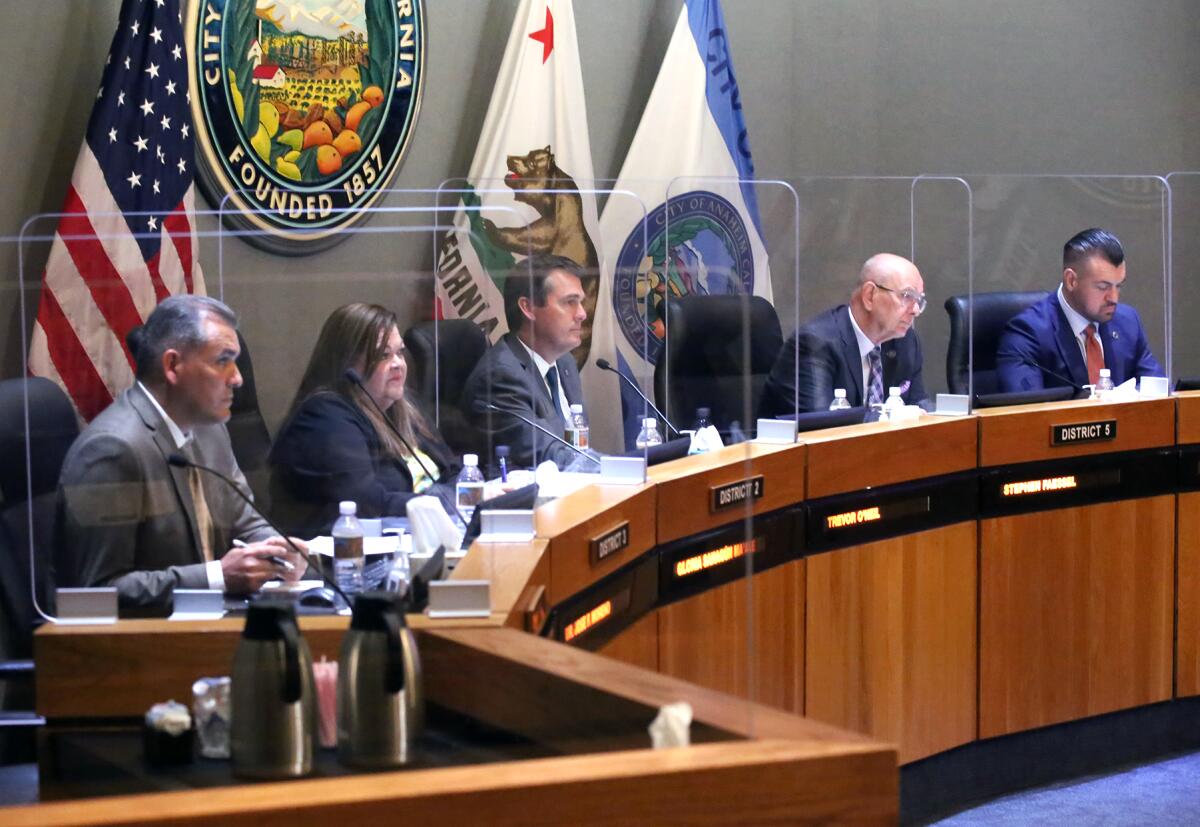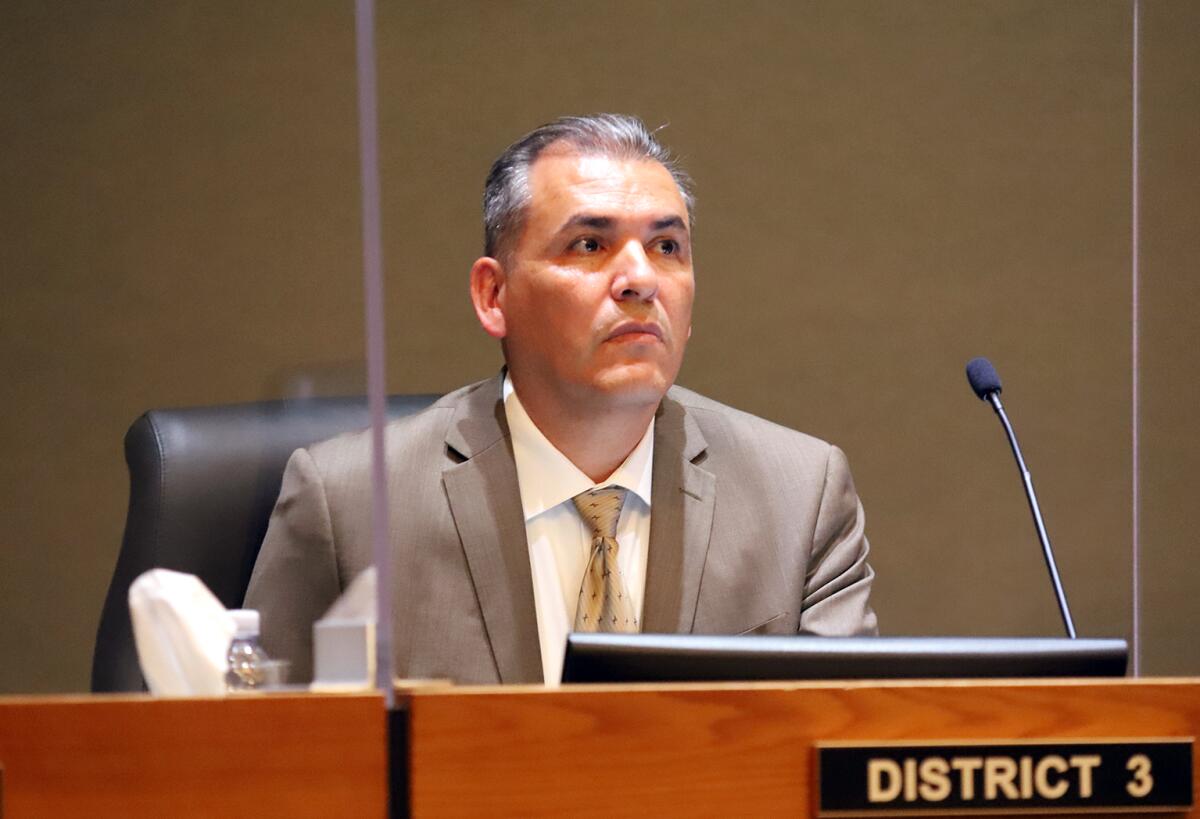Campaign finance reform efforts in Anaheim deadlock again — and again

When Anaheim City Council debated campaign finance reform for a third meeting in a row, it proved to be anything but a charm.
Election spending in Anaheim has come into sharper focus since an FBI probe into former Mayor Harry Sidhu and a self-described “cabal” of political operatives became public.
According to an FBI affidavit, Sidhu allegedly intended to solicit $1 million from an Angels representative in independent expenditures supporting his reelection after completing the $320-million Angel Stadium deal, which was cancelled in the wake of the probe.
That allegation, which Sidhu has denied repeatedly through his attorney, prompted Councilman Jose F. Moreno to introduce a law intended to curb what he called “pay-to-play” politics.
Under Sidhu, Moreno’s previous effort to introduce such an ordinance three years ago didn’t reach the dais for lack of support. But with Sidhu’s resignation on May 24, the ordinance — modeled after the Levine Act with sweeping enhancements — got its first look last month.
Provisions would have required council members to sit out on votes involving donors who have contributed more than $250 in the past 12 months, including through independent expenditures; prohibited contributions from potential donors another 12 months after a related vote; set time limits on when a candidate could raise funds; and allowed for debt relief contributions only within a 180-day time frame after an election.
The law, in accordance with the state’s Levine Act, would exempt recusals from labor contract votes for public employee unions, like the Anaheim Police Assn., that make campaign contributions.
Council members punted further debate to another meeting in June where the ordinance failed to pass on a 3-3 deadlock vote. Councilman Stephen Faessel revived the effort this week but stripped a number of key provisions, which prompted outcries that the law had been “gutted.”
“Let’s go back to the foundation,” he said during the July 12 meeting, “which is essentially what I brought back.”

Faessel asked the public to remember that the original ordinance failed.
But he hoped to keep the conversation alive by seeing if the basics of the Levine Act, which generally doesn’t govern directly elected legislative bodies like city councils, would sway an otherwise deadlocked council.
With that, Faessel excused independent expenditures from the recusal provision. The ban on contributions after a related vote also shrank from 12 months to three. Faessel further retooled the ordinance to drop public enforcement, debt retirement and fundraising time limit provisions.
The changes caught Councilman Avelino Valencia off guard.
“The former mayor of this city used a loophole and requested a million-dollar campaign contribution, not to his personal committee account but an independent expenditure support,” he said. “I don’t know what the perfect solution is to the challenge in front of us, but I do believe that something needs to be done to address the actions that did take place.”
Valencia, who voted in favor of the original ordinance with minor amendments alongside Moreno and Faessel, brought it back for discussion over Faessel’s compromised version.
Moreno followed with a lengthy power point presentation on campaign spending in Anaheim elections since 2016.
“At the heart of the dilemma that we’re under — the cloud we’re under — is big money,” he said.

A slide showed that Support Our Anaheim Resort PAC, through campaign contributions and independent expenditures, invested $2.18 million in favored candidates. Much of that money came from Disney, which has already pumped another $1.3 million into the PAC ahead of November’s elections. The presentation showed the Anaheim Police Assn. to be the second biggest spender with $444,000 in contributions during that time period.
After wrapping up, Moreno asked his colleagues to rise to the moment together, but another deadlock followed with council members Gloria Sahagún Ma’ae, Trevor O’Neil and Jose Diaz voting against the law as they had in the past.
O’Neil, who chairs council meetings as mayor pro tem, attempted to curry support for a disclosure-only version without any contribution-related restrictions.
“I want the public to know who supports my campaign,” he said. “But I don’t want to give an unequitable voice to special interests that some may deem are more acceptable to others.”
Despite O’Neil’s best effort, the vote remained evenly split.
Moreno responded by seeking separate votes on five individual amendments to break the impasse, but all remained at a stalemate. As a courtesy, he gave Valencia the opportunity to make a motion on an amendment he proposed that would require contributions of $250 or more to be disclosed within 72 hours.
The final deadlock followed.
“Where we are this evening on this is going to be about where we were at the last meeting which is exactly why I tried to amend this in the way that I did,” Faessel said afterward.
The last potential vote rested with Faessel’s proposal. Valencia pledged to abstain.
“Dwindling it down to just the Levine Act, in my opinion, considering everything going on does not take the necessary step in the right direction,” he said. “The bare minimum is not good enough.”
Moreno also stated he would abstain.
After two hours of debate, Faessel withdrew his motion, and the push for campaign finance reform died again.
All the latest on Orange County from Orange County.
Get our free TimesOC newsletter.
You may occasionally receive promotional content from the Daily Pilot.




